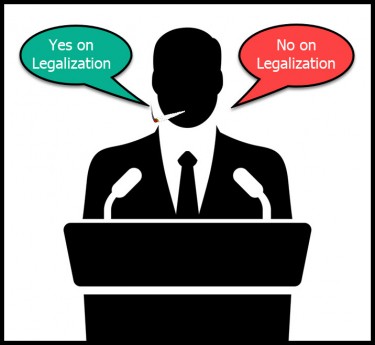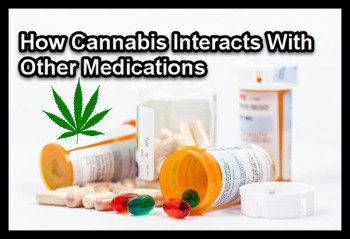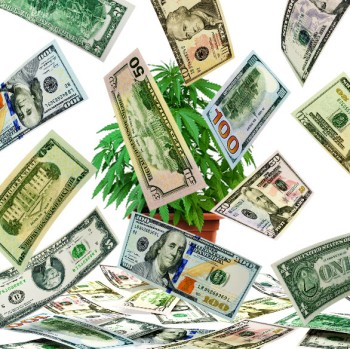
The Argument for Psychedelic Politicians
The world of psychedelics is a wild and uncharted territory, and its intersection with politics is no different. With the recent decriminalization and legalization efforts for psychedelics in cities like Denver, Oakland, and Santa Cruz, it's clear that a shift is happening. But what does this mean for the political landscape? Are we on the cusp of a psychedelic renaissance? Studies have shown the therapeutic benefits of psychedelics for mental health issues such as PTSD and depression, and their potential for personal and spiritual growth. Could the incorporation of psychedelic perspectives in politics lead to a more empathetic and compassionate society? As more politicians, both current and aspiring, come out in support of psychedelic research and decriminalization, it's worth considering the potential impact these substances could have on our political climate.
But first, let’s talk about a mythical entity I like to call the “Psychedelic Politician”.
A "psychedelic-experienced politician" is a politician who has first-hand experience with psychedelics.
This may sound radical, but hear me out.
The war on drugs has been raging for decades, yet it's clear that current policies are failing. The only way to make fair and effective drug policy is to include those who truly understand the effects and benefits of these substances. And who better to do that than those who have personally experienced them?
Of course, this doesn’t mean all drug policy should be made with those who have previously tripped. However, psychedelic-experienced politicians can bring a unique perspective to the table, one that can't be found in politicians who have only read about psychedelics in books or heard about them in meetings. It's time to bring a new level of understanding and empathy to the drug policy conversation, and the inclusion of psychedelic-experienced politicians is a crucial step in that direction.
Sure, this is all hypothetical – but not unlikely. Especially due to the recent advances in psychedelic research and its impact on several mental health conditions. In this article, we’ll discuss the possibilities of a psychedelic politician, why they are important in government as a whole, and why as a society we should encourage a more open conversation about drug use in general.
The Psychedelic Underground of Politics
Despite the growing acceptance of marijuana legalization, the topic of psychedelics remains a controversial one in politics. While some politicians have begun to advocate for research and decriminalization, others still view psychedelics as a dangerous threat to society. However, there is a growing movement among politicians and political activists who have personal experience with psychedelics and believe in their potential benefits.
It is unfortunate that in today's political landscape, there are no politicians with first-hand psychedelic experiences. Despite the growing acceptance and legalization of psychedelics in various states and countries, the topic remains taboo in political circles. This lack of representation is problematic as it means that important decisions about psychedelic policy are being made by individuals who have no personal understanding of their effects.
Politicians who have never taken psychedelics cannot fully comprehend the potential therapeutic benefits they can offer for mental health conditions such as depression, PTSD, and addiction. They also lack the personal experience to understand the risks and potential harms associated with psychedelic use. This lack of understanding can lead to poorly informed decisions, such as excessive regulation and criminalization, that can harm individuals and communities.
Moreover, having politicians with first-hand psychedelic experiences can bring a new level of empathy and understanding to the decision-making process. They can bring valuable insights and perspective to the conversation, and help to destigmatize psychedelics in the public sphere. Furthermore, they can also be an example of responsible use and can help educate the public on the benefits and risks of psychedelics.
The inclusion of psychedelic-experienced politicians in government could bring a new level of nuance and understanding to drug policy.
Uncle Sam Hates You!
The demonization of psychedelics in government is a well-documented phenomenon. From the War on Drugs in the 1970s to present-day FDA regulations, there has been a long-standing negative bias against psychedelic substances in the political sphere. This bias is evident in statements from government officials, such as former President Richard Nixon's declaration that drugs are "public enemy number one" and present-day Attorney General Jeff Sessions' statement that "good people don't smoke marijuana."
This negative bias has also been reflected in government policies and regulations. The FDA, for example, has sustained a monopoly on drug distribution by making it extremely difficult for researchers to study psychedelics and by classifying them as Schedule I substances, a classification reserved for drugs with no medicinal value and a high potential for abuse. This classification has hindered scientific progress in many areas, including mental health and neuroscience.
The demonization of psychedelics in government has also stifled the public's ability to access information about these substances. For over 50 years, the government has kept the public from researching psychedelics, resulting in a lack of knowledge about their potential therapeutic benefits. This lack of knowledge has perpetuated the negative stereotypes and misconceptions about psychedelics.
Serious repercussions have resulted from the government's demonization of psychedelics for both individuals and society as a whole. The government's war on drugs is a war on awareness and an assault on the Bill of Rights, according to former Harvard psychiatrist Dr. Lester Grinspoon.
Due to the numerous civil freedoms that have been violated, the war on drugs can be viewed as a battle against the Bill of Rights. Criminalizing drug use and possession has resulted in mass imprisonment, which disproportionately affects low-income and communities of color. The Fourth, Fifth, Sixth, and Eighth Amendments—which safeguard people from arbitrary searches and seizures, self-incrimination, harsh and unusual punishment, and the right to a fair trial—have been violated as a result of this.
The Fifth Amendment has been violated as a result of the drug war's unjustified seizure of private property. Through civil asset forfeiture, which allows law enforcement to confiscate property without first filing criminal charges against the owner, this is accomplished.
The drug war has also resulted in limitations on free speech and expression since it has been used as an excuse for censorship and the suppression of opposing views. For instance, the Controlled Substances Act has been used to silence proponents of drug policy change and to stifle psychedelic research.
How could a “Psychedelic Politician” could even exist in this climate?
The majority of politicians consider psychedelics as a recreational substance with no therapeutic benefit, contributing to the present political climate's intense stigma against them. However, as more research is done and the potential therapeutic advantages of psychedelics are investigated, this impression of psychedelics is gradually beginning to change. A politician with personal experience using psychedelics would have to do so for therapeutic purposes. This might entail taking part in research trials for the treatment of mental health conditions like depression, PTSD, or anxiety, or utilizing psychedelics as a personal tool for improving oneself and conquering mental health difficulties.
This strategy is comparable to the way several states legalized marijuana. The legalization campaign placed less emphasis on cannabis's usage for recreational purposes and more on its medical advantages, such as its capacity to lessen PTSD and anxiety symptoms as well as chronic pain. This change in emphasis opened the path for the legalization of cannabis and served to lessen the stigma attached to it.
The best voice for the legalization of psychedelics would be someone who has used them for therapeutic purposes. They would be able to discuss the therapeutic advantages of psychedelics and how it has assisted them in overcoming mental health difficulties from firsthand experience. Additionally, by focusing the discussion on psychedelics' medicinal benefits, the case for them would be less contentious and more likely to win over the public and political leaders.
Although the concept of a "psychedelic politician" may seem appealing, it is extremely implausible. Politics and psychedelics have fundamentally different properties from one another. Psychedelics are about emancipation, self-actualization, and breaking free from social conventions, but politics is about adhering to rules, authority, and supporting the existing quo.
Additionally, those who have undergone profound inner development as a result of their psychedelic experiences could find it challenging to fit in with a political environment that is frequently perceived as lacking soul. They could place a higher priority on ideals that are sometimes overlooked in the political realm, such as love, peace, harmony, and freedom.
A "psychedelic politician" could only exist if they had taken psychedelics for therapeutic reasons, such as the treatment of a mental illness or overcoming some sort of personal limitation. This would provide psychedelics a "use case" that is more concerned with mental health and personal development rather than with recreational usage. Yet even under these conditions it would be challenging for someone who has undergone a significant personal transformation to fully assimilate into the political environment. It simply isn't a "welcoming place" to trip!
Psychedelic Mass Adoption Hypothesis
Legalization and de-stigmatization of psychedelics could lead to a cultural enlightenment, much like the "peace and love" movement of the 1960s. This time, however, the focus is on the mental and spiritual health benefits of psychedelics, rather than just their recreational use. Studies suggest that endogenous DMT may play a role in sustaining our perception of reality, and this new understanding of psychedelics as a tool for personal and spiritual growth could lead to a more widespread acceptance of their use.
Microdosing, or taking small doses of psychedelics to enhance professional performance, and macrodosing, or taking larger doses to work through trauma and mental blocks, could become mainstream practices. Imagine if just 5% of the world's population had access to and used psychedelics in this way - it could lead to a more inclusive and peace-focused society. People would be more open to new ideas, more empathetic and understanding the inter-connectivity of all things, and more likely to approach problem-solving and decision-making with a wider perspective. The potential for a deeper understanding of the mind-body connection and mental health could lead to a more compassionate and holistic approach to healthcare.
In 1953, Francis Crick and James Watson discovered the structure of DNA, famously known as the double-helix. This discovery was made possible in part due to the use of LSD in scientific experiments. The drug was used to stimulate creative thinking and provide insight into the structure of DNA. This discovery has revolutionized the field of genetics and has had a profound impact on our understanding of biology and evolution.
This is just a “side effect” of some smart people taking these substances. Can you imagine what could happen in all fields of society? What if politics had this holistic approach to rulemaking? Or Pharma Companies saw how they could heal the world instead of trying to milk mankind for its precious moneys.
Psychedelic mass adoption could be a revolutionary force for good in society. It could help us to understand the world in a more holistic way, and give us insight into what really matters in life. It could help us to develop healthier relationships with ourselves, each other, and the world around us. It could provide an alternative to the negative effects of mass A.I adoption, and help us to maintain a sense of humanity in this cyborg reality. If used responsibly, psychedelic mass adoption could be the very thing we need to create a more balanced, compassionate, and sustainable society.
THE POLITICS OF WEED, READ ON...
POLITICIANS IN LEGAL STATES VOTING NO ON FEDERAL LEGALIZATION?







